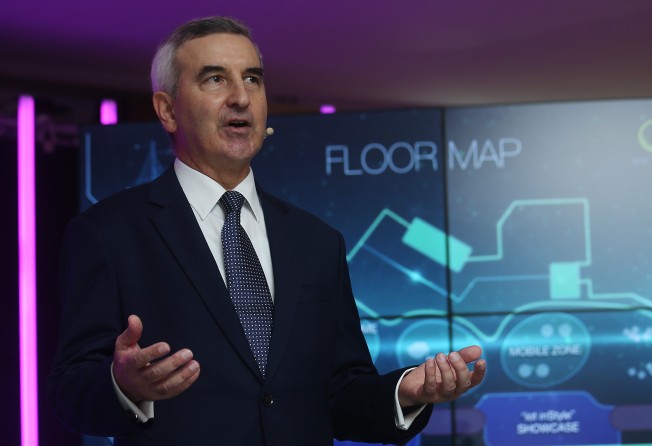HKT in big push to bring the internet of things to the home
Hong Kong’s largest telecoms network operator helps to usher in a future of ubiquitous, automated smart homes across the city

Efforts in Hong Kong to raise awareness for the so-called internet of things (IoT) received a big boost on Tuesday with the launch of the telecommunications industry’s first dedicated retail showcase for this super network of connected devices.
The 5,200-square feet concept store by HKT, the city’s largest mobile and fixed-line network operator, opened its doors at the high-end Elements mall in Kowloon to offer the general public a look at IoT systems and connected devices, and show how they can help automate and make homes smarter.
“This is an experiment,” HKT group managing director Alex Arena told the South China Morning Post. “I don’t know whether we got it right or wrong yet. The challenge for us is how to explain technology to people, so we created this space where we can show how technology works.”
IoT represents a super network of networks, consisting of internet-linked devices embedded in everyday objects that gather, send and receive data, as well as be controlled via mobile applications.
At HKT’s “io.t” store – a name that refers to the goal of “inspiring our tomorrow” – these devices include a range of connected technologies that include Amazon’s Alexa voice assistant-powered Echo smart home speaker system, Wi-fi mesh networking solution, Samsung Electronics’ Family Hub smart refrigerator, and Philips’ luminous textile lighting.
Data from research firm Gartner estimated there will be 8.4 billion connected IoT devices in use around the world by the end of this year.
The consumer segment is expected to be the largest user of connected things with 5.2 billion units this year, while businesses are on track to deploy 3.1 billion connected devices.
The Hong Kong government has encouraged the adoption of IoT solutions to push forward the goal of developing a smart city.
“What the government is most interested in is putting IoT applications to popular use by the community, and stimulating further development of industries and our economy,” said Nicholas Yang Wei-hsiung, the Secretary for Innovation and Technology, at an event in June.
“Over the years, the government has been using IoT sensors to improve public services. For example, we deploy sensors at strategic routes to collect real-time traffic data, in manholes of city storm drains to detect water levels, and inside slopes to detect impending landslides.”
That effort, however, has proved to be vastly complicated because of the different proprietary technologies used in IoT deployments around the world.
Arena expected IoT device vendors to eventually coalesce on certain widely used standards “because that is the only way to realise mass adoption”.
While acknowledging the huge potential in IoT development, the president of the Hong Kong Internet of Things Advisory Council, Robert Burton, said in June that the challenges ahead are caused by the various standards, protocols, technologies and applications for IoT.
“It is necessary to bring the industry together to facilitate interoperability between different applications, as well as applications and devices, to truly realise the full potential of IoT,” Burton said.
Worldwide spending by organisations on IoT is forecast to total nearly US$1.4 trillion by 2021, up from an estimated US$800 billion this year, according to research firm International Data Corp.
Asia-Pacific, excluding Japan, is projected to be the IoT investment leader among geographical markets, with spending of US$455 billion in 2021.